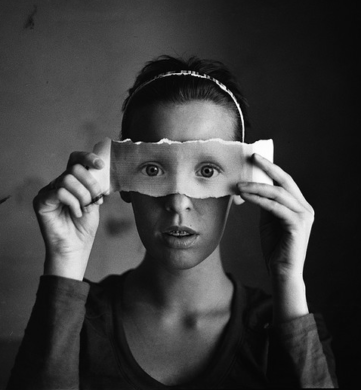Exposure to different culture (Part 1)
When I was 15, my parents took the decision to send me for higher education in Singapore, and later, Australia. They anticipated English to be an integral part of my future and they wanted me to open up to the world. They wanted me to learn to be on my own and through the experience of not having them around. They hoped that I would be taught in things they couldn’t educate me themselves. They knew that it would be useful for my life in future and if anything happened to them, this would be my lifetime support. Education was a form of a heritage my parents passed down to me.
When I knew I was going to be studying in Singapore, I was nervous and excited all at the same time. I was looking forward to be in a new place, yet I didn’t know what to expect. Part of me wanted to be meeting people from different country, making new friends and being exposed in a different environment. Another part of me was afraid that I might not like the place or I might not fit in. I wasn’t exactly prepared for what was going to come but I thought to myself that it was all about trying, experiencing and learning something new.
 I wanted to be able to express my myself and define who I am and I wanted a chance to really grow up and be independent. Being away from my family would help me do that. I knew it was a big change but I thought to embrace it and somehow try to make the best out of it the way I could in case it didn’t turn out well.
I wanted to be able to express my myself and define who I am and I wanted a chance to really grow up and be independent. Being away from my family would help me do that. I knew it was a big change but I thought to embrace it and somehow try to make the best out of it the way I could in case it didn’t turn out well.
A big part of me wanted to be making my own decisions. I wanted to learn my own mistakes. I wanted to experience life through my own eyes. I wanted to experience all of it.
Life in Singapore
I stayed with a Singaporean family of two kids, a daughter and a son, throughout five years. My host family took in Thai students who went for primary and secondary education in Singapore under their care, all girls. The daughter was enrolled in secondary school the same time as me. I must admit there was a big cultural difference between the host family and me. Everything was contradicted in my views. Everything was different. My whole environment had changed. I felt estranged to… honestly, everything around me.
The only thing I could be grateful for was that I had six other housemates who I could still relate to. It made me less homesick. I felt that because having them around I found it much easier to adjust.
Some of my housemates went there when they were even younger than me. They were like sisters to me. They knew exactly what I was going through being new to the place, they were in my shoes. It helped a lot with everything.

One of the few things I picked up from my housemates before officially going to the school was Singlish. At that point I realised that Singaporeans actually spoke Singlish, rather than English. Singlish was a mix of English and Chinese and Malay slangs.
I learnt a few words I found interesting. “Alamak,” read as ah-la-mak, means “oh my god!” and “Guai” means “good girl” it can also be used for a guy with same the word. Apart from those two, the most common one I heard all the time was “Wa-lao eh,” it was an expression for “What the heck!” I found it entertaining and hilarious to find myself speaking in this new language.
In school, Singlish turned out to be the easiest way to get along with my Singaporean classmates. Language, as I became aware of, was how people related themselves to others; a common ground; specific to a culture. It gave that sense of belonging to them because it showed that I was willing to embrace their language and culture, being just like another Singaporean so to say. I didn’t really have problems studying in school in terms of academic performance, but pressure were still everywhere. I could feel it all of the time and it was really stressful to just be there.
Competitiveness
There were high expectations for students to do well academically. It was like I was constantly pushed by some unseen force to keep going and doing better and better, no break. I was devastated because of that. It made me feel vaguely distant and disconnected to the place. I certainly didn’t anticipate my teenage life to be in so much pressure. This was the biggest problem I had while staying in Singapore. I wanted to know how to enjoy while I still could being in secondary school… instead of working.

Singaporeans were generally really competitive with their studies, although I must say not all my friends were the studious type but for those who were, yearned to be at the top. It was like you had to be better than anyone else to survive and it turned out to be more like ‘surviving’ than living a life. Somehow people had that mentality to be selfish with their knowledge. It was something people couldn’t open up to share because if they did then they wouldn’t be topping the scores. As it turned out, no one was really helping anyone but themselves. It was depressing. It grew into people’s mentality of everything and for that everyone was on their own and for themselves only.
Nonetheless, there was a good thing I noticed and admired Singaporeans for. Apart from being tough, they were also fair and worked hard for their own achievement. They wouldn’t take advantage of you, especially with money – it was something people earned and Singaporeans had their pride for that, too. If I was having lunch or dinner with my friends they wouldn’t accept that I paid more or less while sharing the bill. You paid for what you ate and that’s that. They wouldn’t take your money and they expected you to give the same respect – that wasn’t just the respect for others; for yourself as well. On the other hand, if you managed to get through to them and treat them something, they would remember it and be genuinely appreciative because in Singapore, no one had to do it and when someone did that for you, it was a true generosity.
 In Singapore, you were recognised by your effort and hard work. I learnt that if I wanted to accomplish something in life, I simply just had to go for it. It got rid of my fear for failure or should I say I had tolerance for it. I didn’t mind failing the first few times as long as I no longer failed in the end. That mentality grew in me, I didn’t even know since when, but I liked to work hard for the things I wanted to accomplish. I did not want to go through shortcuts or wanted others to work for me, I wanted to do it myself. It’s like if you had a belief that you can do it, you would just do it.
In Singapore, you were recognised by your effort and hard work. I learnt that if I wanted to accomplish something in life, I simply just had to go for it. It got rid of my fear for failure or should I say I had tolerance for it. I didn’t mind failing the first few times as long as I no longer failed in the end. That mentality grew in me, I didn’t even know since when, but I liked to work hard for the things I wanted to accomplish. I did not want to go through shortcuts or wanted others to work for me, I wanted to do it myself. It’s like if you had a belief that you can do it, you would just do it.
I felt that I learnt so much more going through the hard work myself because I didn’t just accomplish something out of that, I also learnt to understand my own strength and potentials along with improving myself. With that mentality, I came to believe that I was capable of anything. Everytime, I felt that my life was difficult and that I was going through a hard time, I knew that I would make it through. It was almost like I just had to be patient and things would work out. It made a difference when you knew your own strength and became aware of it and believing in it. Being in Singapore, I didn’t want to wait and rely on others to pick up when I fell, I wanted to be the one strong enough to pick myself up. I wanted to be that person I could rely on before even wanting to rely on other people.
Image sources:
http://www.provenway.org/news/new-perspective/
http://www.mihaelaivanova.com/
http://images.fromupnorth.com/124/5040a7479b2ec.jpg

